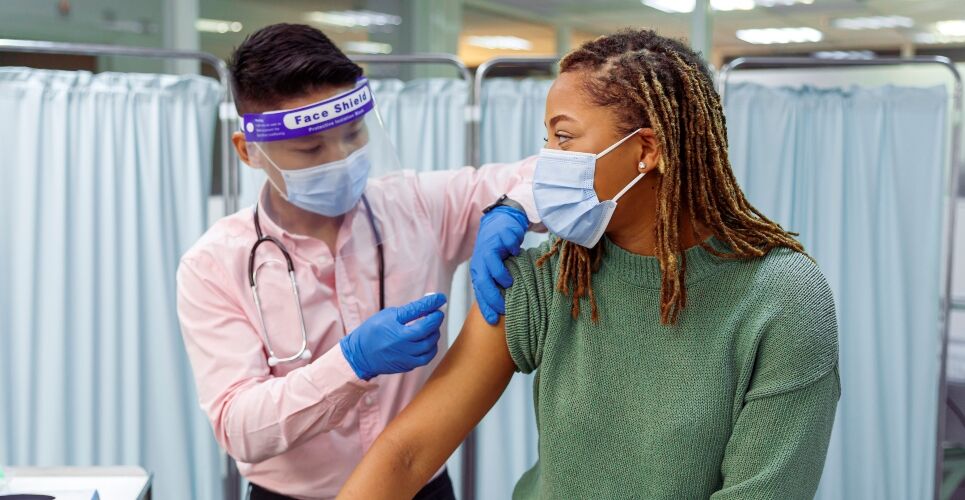A study of almost three million women found no evidence of an increased risk of menstrual changes after Covid vaccination.
Researchers suggested there was a weak association between the vaccine and menstrual disturbance or premenstrual bleeding, in a paper published in the BMJ.
The findings do not provide ‘any substantial support’ for a causal association between the Covid vaccination and healthcare contacts related to menstrual or bleeding disorders, the authors said.
Many women self-report changes to their periods after a Covid vaccine – including excessive, frequent, absent or irregular menstruation – and a link between the vaccine and menstrual disturbance has also been discussed on social media, causing global concern.
‘Weak and inconsistent associations’
The researchers in Sweden drew on high-quality health registry data to evaluate the risks of menstrual disturbance and bleeding after the Covid vaccination in 2,946,448 women aged 12-74 from December 2020 to February 2022.
The authors, led by Rickard Ljung, professor at the Swedish Medical Products Agency, said: ‘We observed weak and inconsistent associations between SARS-CoV-2 vaccination and healthcare contacts for postmenopausal bleeding, and even less consistent for menstrual disturbance, and premenstrual bleeding.’
The healthcare contacts in the study included primary care visits, specialist outpatient visits, and days of hospital stay related to menstrual disturbance or bleeding before or after menopause.
Pfizer-BioNTech, Moderna, and Oxford-AstraZeneca vaccines were all assessed along with the dose number, whether that be unvaccinated, first, second, and third dose.
This was measured over a control period of one to seven days, followed by a second time window of eight to 90 days.
More than 88% of women received at least one Covid vaccination and over 64% of vaccinated women received three doses during the study period.
The highest risks for bleeding in post-menopausal women were seen after the third dose in the one-to-seven-day risk window (28%) and in the eight-to-90-day risk window (25%).
Covid causal effect unlikely
The analysis also suggested a 23-33% increased risk of post-menopausal bleeding after eight to 90 days, with Pfizer-BioNTech and Moderna after the third dose, but a less clear association with Oxford-AstraZeneca.
However, the study concluded that after adjusting for socioeconomic factors, previous healthcare use and specific medical conditions, this almost completely removed weak associations, suggesting a casual effect was unlikely.
A version of this story was originally published by our sister publication Pulse.

